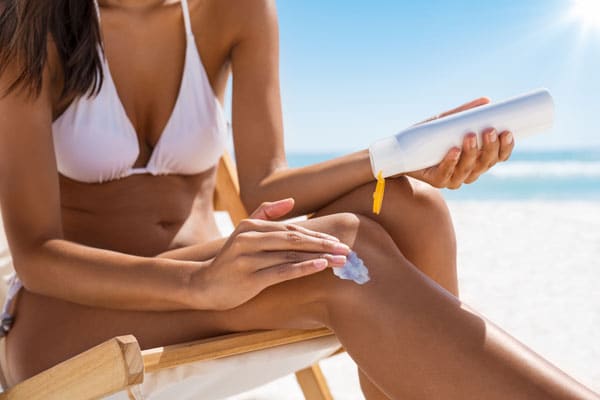SKIN CANCER CHECKS
& SKIN CONDITIONS
Smart Prevention and Skin Management for Healthy skin
Skin Cancer Checks
Living in Queensland, we have one of the highest rates of skin cancers in the world, so regular skin cancer checks are vitally important! Early diagnosis of skin cancer can save your life.
In general, we recommend performing a self-skin check every 6 months, and visiting your doctor for a thorough examination every 2-3 years. This may vary depending on your skin type and lifestyle.
Fortunately, skin cancer checks are easily accessible and can help with the prevention and early detection of skin cancers. Our doctors are skilled in skin examination, taking biopsies and excision of skin lesions.
Book a skin examination appointment with Dr Tina Fang and Dr Alvin Lim. Please arrive prepared with no makeup or nail polish.
What is Melanoma?
Melanoma is a type of skin cancer that can be deadly if not caught early. Skin cancer checks are important because they can help catch melanoma in its early stages, when it is most likely to be successfully treated.
To look out for melanoma, watch for changes in the size, shape, or colour of a mole, or for any new growths on the skin. If you have any concerns about a mole or growth, talk to your doctor. The treatment options for melanoma include surgery, radiation therapy, and chemotherapy.
Staying Sun Smart!
Australia has one of the highest rates of skin cancer in the world. Anyone can be at risk of developing skin cancer, though the risk increases as you get older.
The majority of skin cancers in Australia are caused by exposure to UV radiation in sunlight. For best protection, when the UV level is 3 or above (this can be checked on the Bureau of Meteorology website), we recommend a combination of sun protection measures:
- Cover as much skin as possible with loose clothing
- Apply broad spectrum, water resistant sunscreen SPF30+ or more.
- Apply 20 minutes before going outdoors and every 2 hours afterwards
- Protect your face, head, neck and ears with a broad brimmed hat
- Use Australian standard sunglasses
- Reduce time spent in direct sunlight, especially around midday
Skin Conditions
Skin disorders may be temporary or permanent and vary greatly in symptoms and severity. Some have environmental causes, while others may be genetic.
While most skin disorders are minor, others can indicate a more serious issue, so it is always best to have it checked out by your doctor.
At Medsana Medical Clinic we can diagnose and create management plans for a range of skin conditions; including, but not limited to:
- Eczema
- Rosacea
- Psoriasis
- Dermatitis
- Hives
- Warts
Checking Your Skin: Tips & Tricks with Dr Alvin Lim


